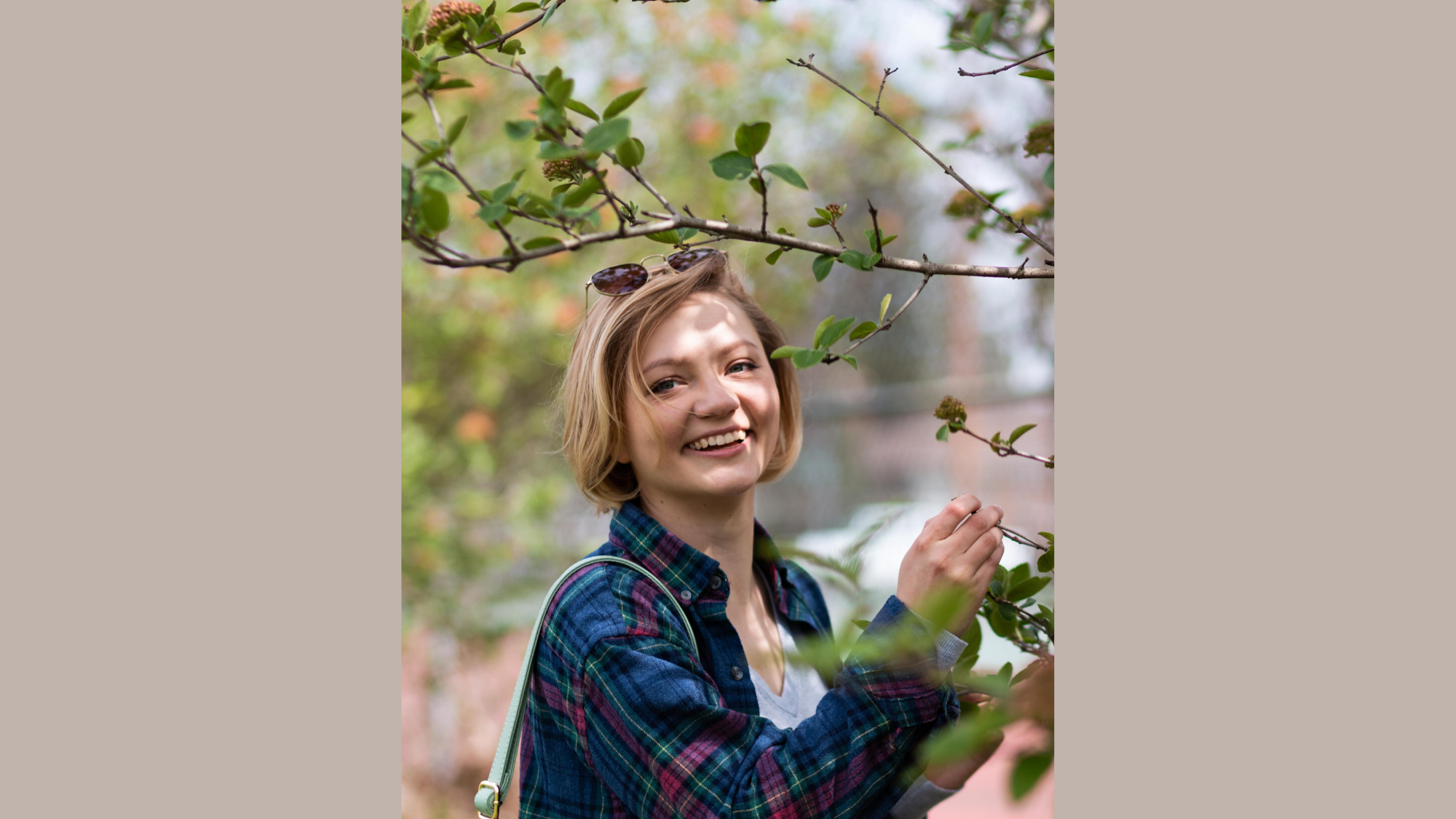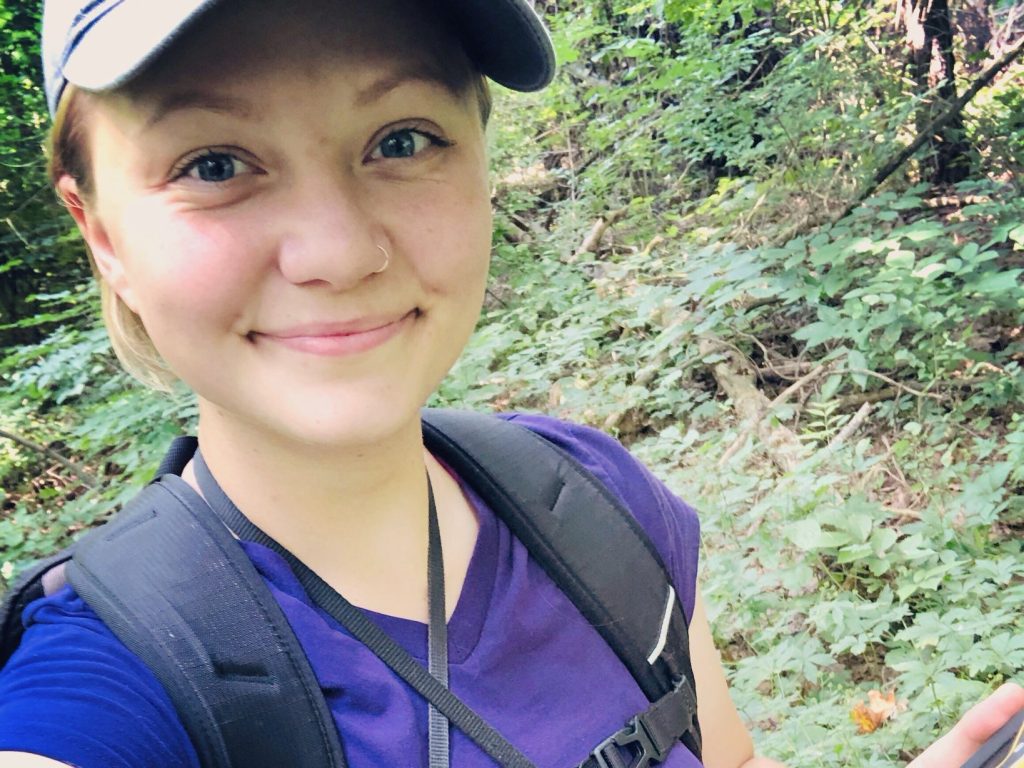Researcher Spotlight – Kate Gorman

2020-21 Global Change Fellow
PhD Student, Department of Applied Ecology
Advisor: Dr. Elsa Youngsteadt
Every year the Southeast Climate Adaptation Science Center funds a multi-disciplinary cohort of Global Change Fellows representing colleges across NC State University. Here are some highlights about 2020-21 Fellow, Kate Gorman, and the applied research she’s conducting.
About You
What do you study?
I study Urban Ecology, specifically how socioeconomic factors impact bee diversity and how bees are distributed throughout cities. I’m currently getting ready for my first field season where I plan to identify bees and the characteristics of their habitats found in residential areas of varying socioeconomic status. I want to see if there are any trends between socioeconomic status, the management of residential landscapes, and bee diversity in urban environments.
What do you think is the most pressing issue related to global change?
Urbanization is a growing concern in the realm of global change. At this point in history, more than 50% of people globally live in urban areas, and that percentage is only going up. As more and more people move to cities, urban sprawl will likely increase, meaning that more natural spaces will turn into urban spaces at a faster rate. While I don’t believe that urbanization is inherently a bad thing for conservation, I do think that the relationship between urbanization and how it affects the biodiversity of urban ecosystems is understudied. Cities can actually be a valuable conservation resource, and there are many species that thrive living the big city life. I believe we need a better understanding of ecosystems in urban environments so that we can build more sustainable cities in the future.
About Your Research

How would you describe your research to a 3rd grader?
“I study bees in the big city! Yes, the bugs that can sting you, but not only those kinds. They live here just like we do and they like it just as much. There are plenty of flowers that they like to eat and plenty of places for them to make a nest for their babies. Even though some of them sting, they are actually very important for your health. They help all of those flowers that we like so much to make new flowers! And they do the same thing for most of your favorite foods. You can thank bees for the blueberries that you had with your breakfast! Since they like to live in cities, I’m trying to figure out WHERE they like to live and WHY they like it. Once I figure that out, then we can make sure that they have plenty of places to live and eat in the future so that we have bees around for a very long time. That way, you can keep eating blueberries with your breakfast.”
Who will benefit from your research?
Bees are an integral part of our ecosystems, and the important role that they play in pollination of most of our food cannot be emphasized enough. In a way, researching bee diversity and habitat is beneficial to everyone. However, I’m specifically interested in what impacts the inequitable distribution of bees in our cities, because whiter, more affluent areas tend to have more biodiverse ecosystems than non-white, lower income areas. This is an environmental justice issue as much as it is an ecological issue since exposure to biodiverse environments is so important for overall human wellbeing. I hope that my research helps to encourage bee conservation, as well as shine a light on the social-ecological inequality of urban biodiversity.
About Your Global Change Fellow Experience
How do you expect the SE CASC Global Change Fellows Program to impact you and your work?
So far, the SE CASC Global Change Fellows Program has provided me with the privilege of learning from so many incredible experts in their field, as well as some valuable perspectives from individuals with these lived experiences of global change impacts. The knowledge that I have gained about environmental inequality and the inherent value of traditional knowledge has forever changed the way that I will conduct my research, and I hope to be a more responsible scientist from this point forward.
What has been the most rewarding part or your favorite part of being a SE CASC Global Change Fellow?
So far, I have felt the most rewarded by the incredible community of the SE CASC Global Change Fellows Program. I am very grateful to be surrounded by people doing such impactful research dedicated to a safer, healthier, and more sustainable future for people and the environment. The insight of the other fellows and professionals that we work with has been just as informative as any class that I have taken and I’m grateful to have the opportunity to work with them so early on in my career.
